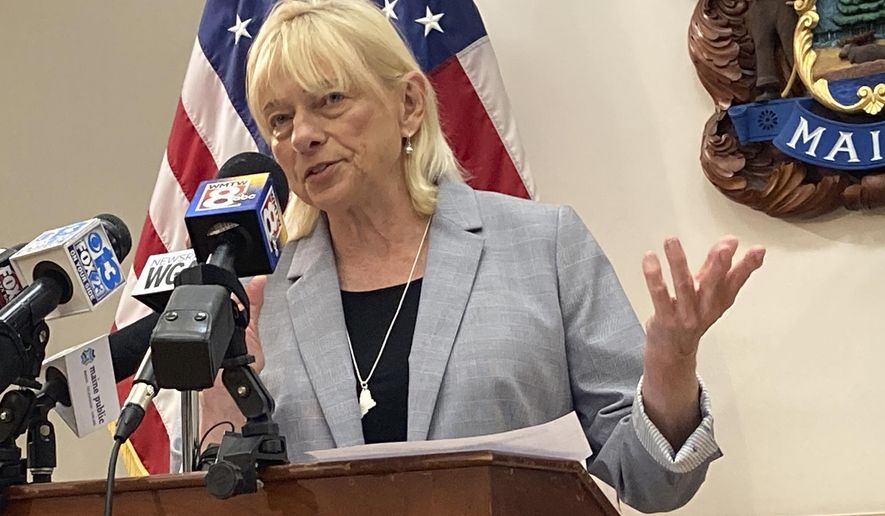Maine health care workers asked the Supreme Court to halt the COVID-19 vaccine mandate in the state, where more than 2,000 nurses and medical techs oppose Gov. Janet Mills’ requirement to get vaccinated by Oct. 29 or get fired.
They claim the mandate from Ms. Mills, a Democrat, runs afoul of federal law because it does not provide them with a religious exemption.
Lower courts refused to halt the mandate, so the request is now pending before Justice Stephen G. Breyer at the high court.
Mat Staver, the founder of Liberty Counsel, which is representing the health care workers, said the Maine health care workers have the legal right to request a reasonable accommodation.
“Forcing COVID shots without exemptions is unlawful,” he said. “The governor cannot override federal law and force health care workers to violate their sincerely held religious beliefs by forcing them to inject an experimental substance.”
Legal experts say the health care workers face an uphill battle.
This is the third case challenging vaccine mandates to come before the justices. So far, the other two have been batted down.
Justice Amy Coney Barrett refused to grant an injunction in August to students at the University of Indiana who challenged the school’s requirement for them to get the shot.
Justice Sonia Sotomayor earlier this month also rejected a request to block the vaccine requirement for New York City public school teachers.
“What I’m seeing is most courts uphold mandates,” said Dorit Rubinstein Reiss, a professor at UC Hastings College of Law, though she said the issue is unsettled and still working its way through various courts.
She cited a case in New York, Dr. A. v. Hochul, as one of the broadest cases to temporarily limit a state vaccination mandate.
In that dispute, a judge halted New York Gov. Kathy M. Hochul’s requirement for health care workers to get vaccinated without offering religious exemptions. The pause on the mandate is in place while the litigation continues.
Also, a group of athletes won a temporary victory last week when a judge granted them a restraining order from having to get the shots to continue playing sports for Western Michigan University. The student-athletes had sued, claiming their religious exemptions were denied or ignored.
Leslie Gielow Jacobs, a law professor at the University of the Pacific, predicted that most cases will be appealed to the Supreme Court, but the justices will only take up the religious liberty claims where individuals aren’t treated equally.
“The Court can choose whether to accept cases for review and usually, with a topic like this one that has so many variations and is evolving, the Court will wait for lower courts to reach final decisions and will accept review if the lower courts reach split judgments on an important issue,” Ms. Jacobs said.
• Alex Swoyer can be reached at aswoyer@washingtontimes.com.




Please read our comment policy before commenting.